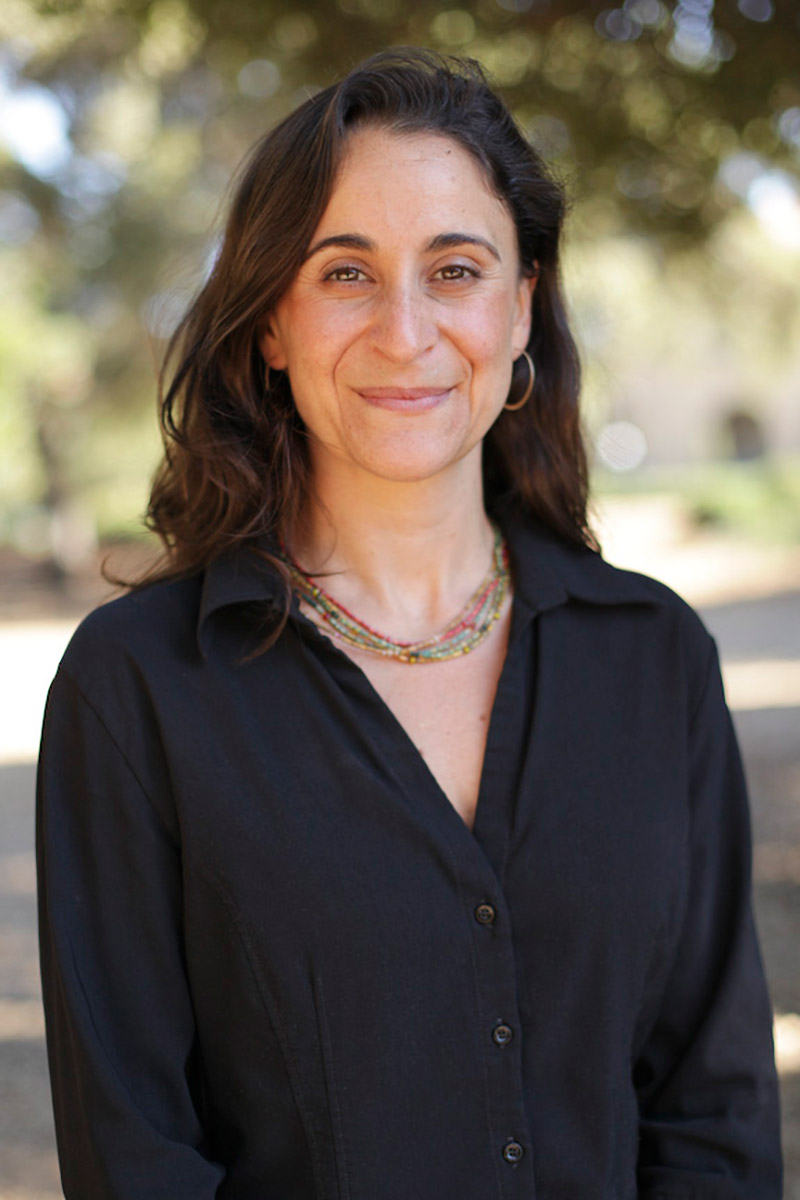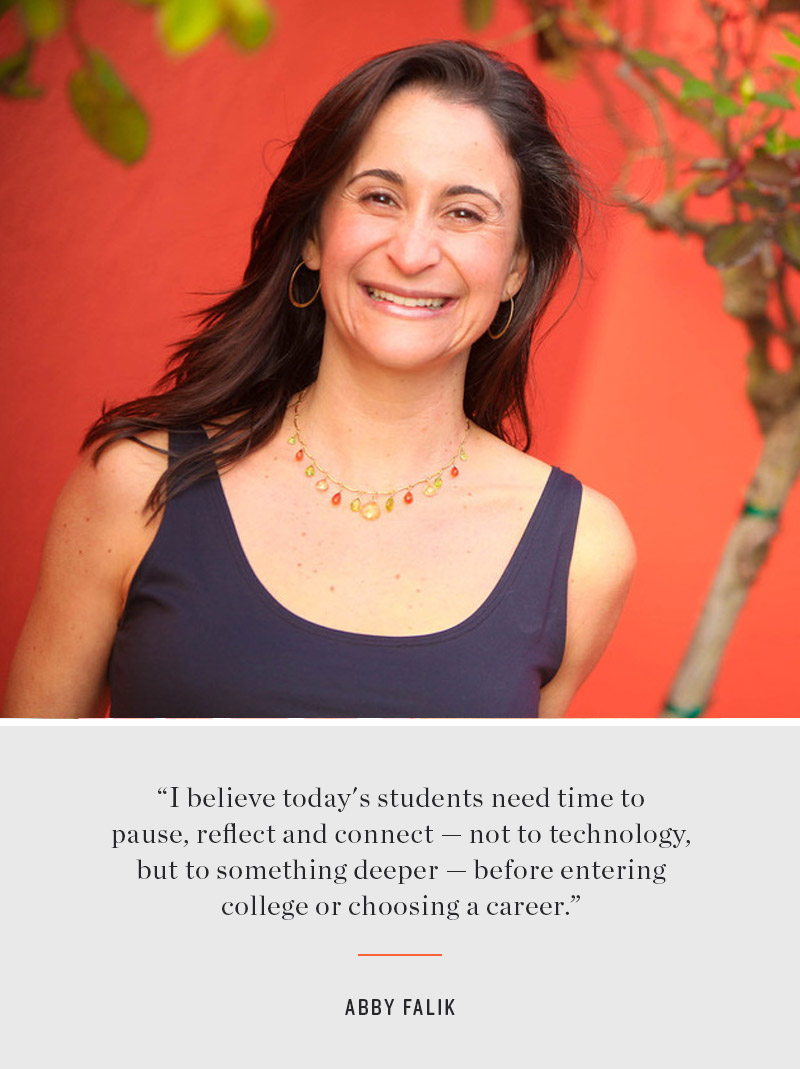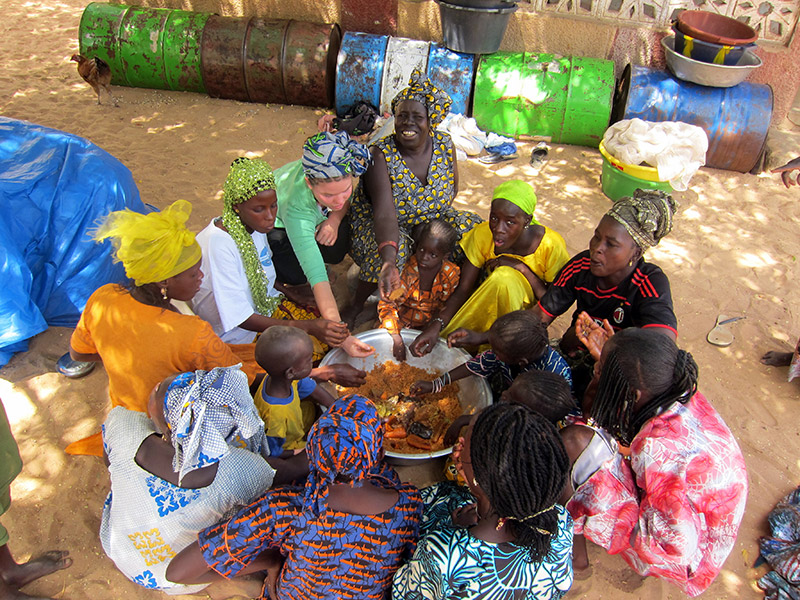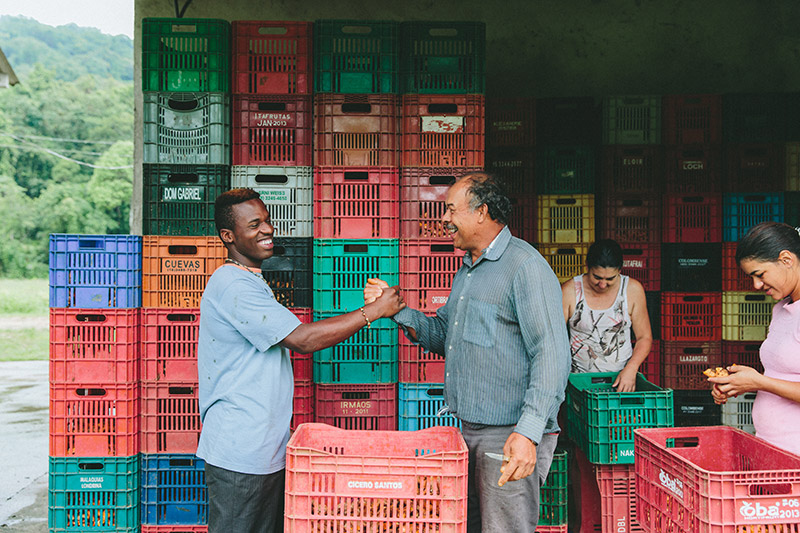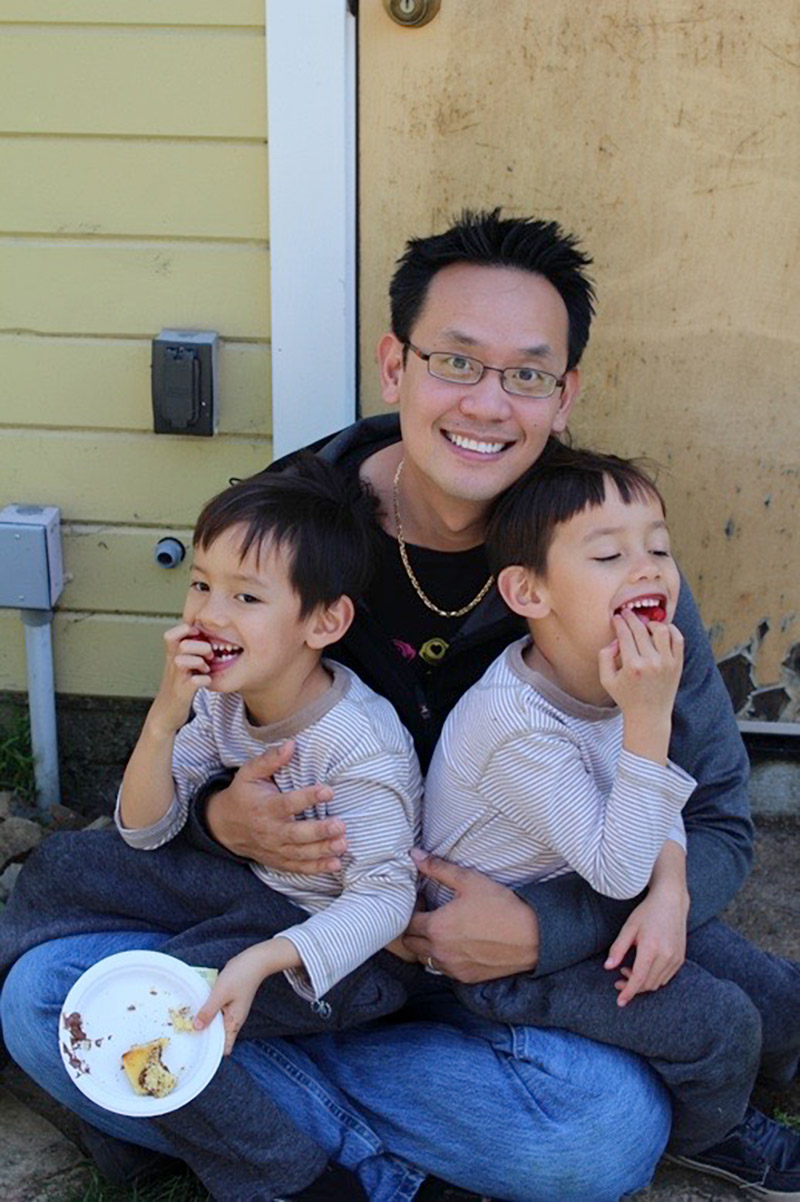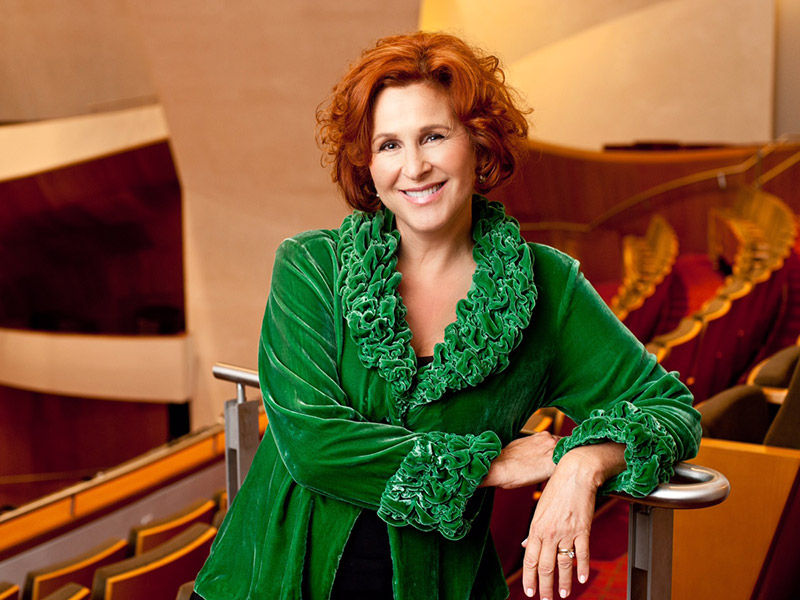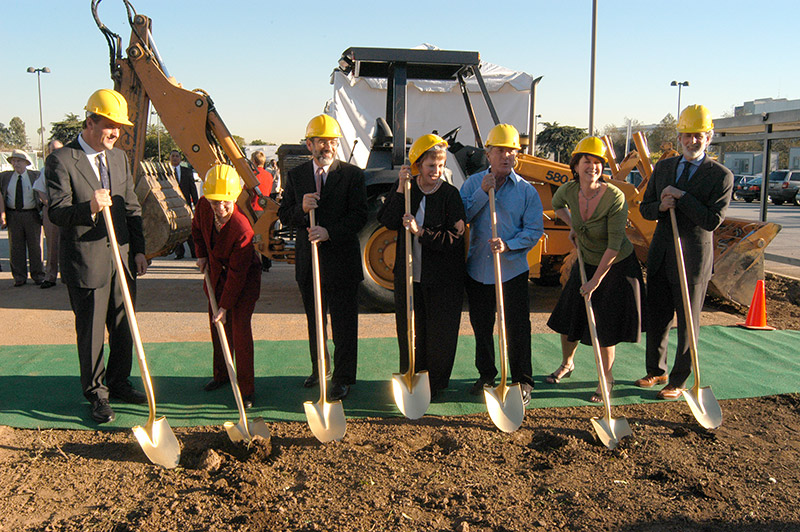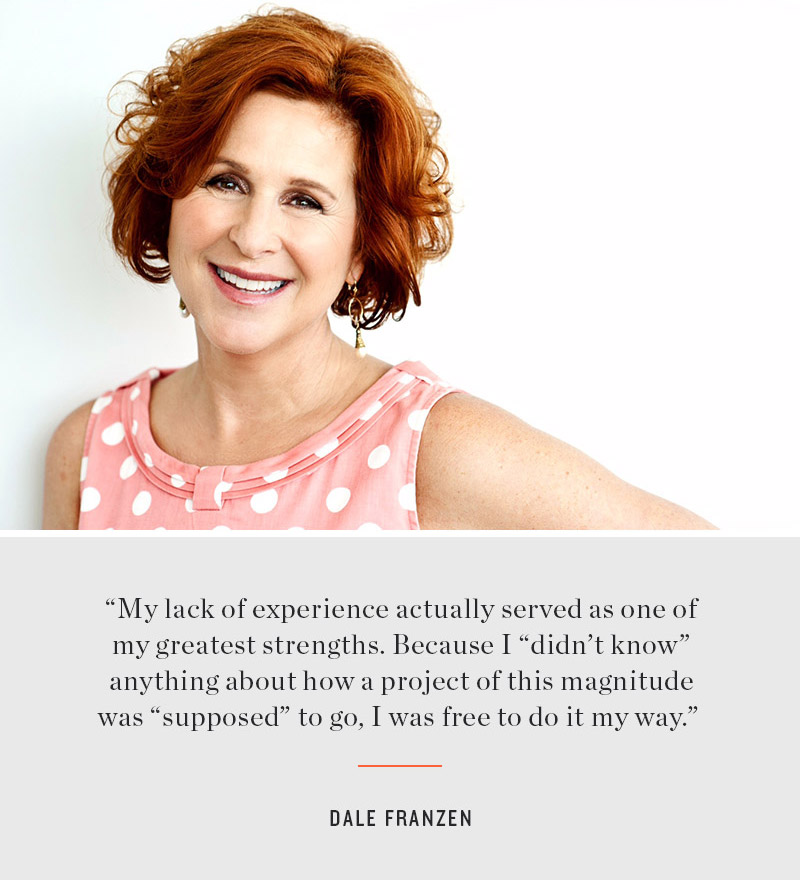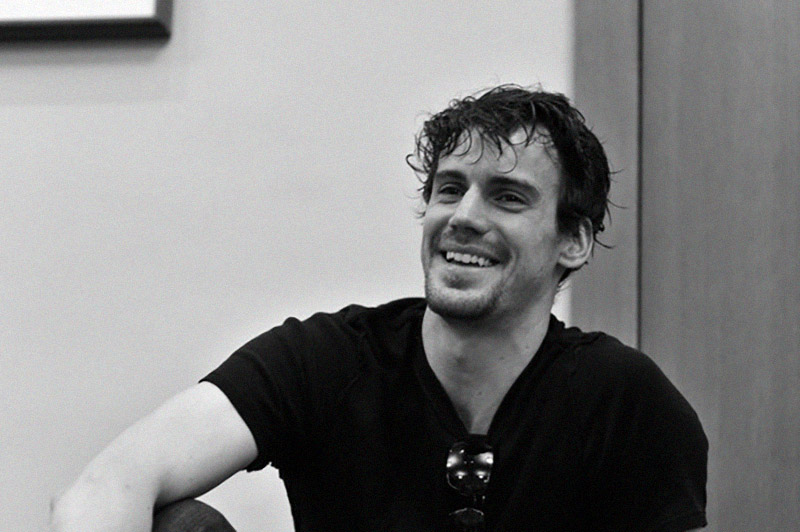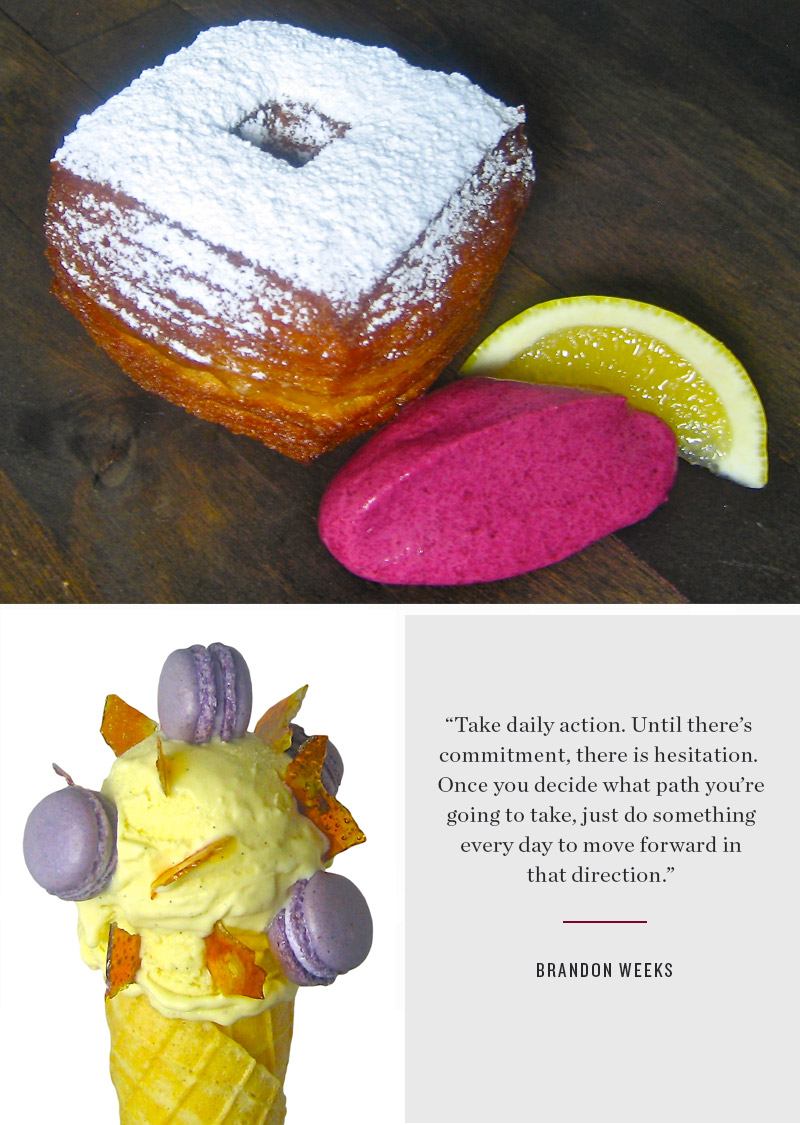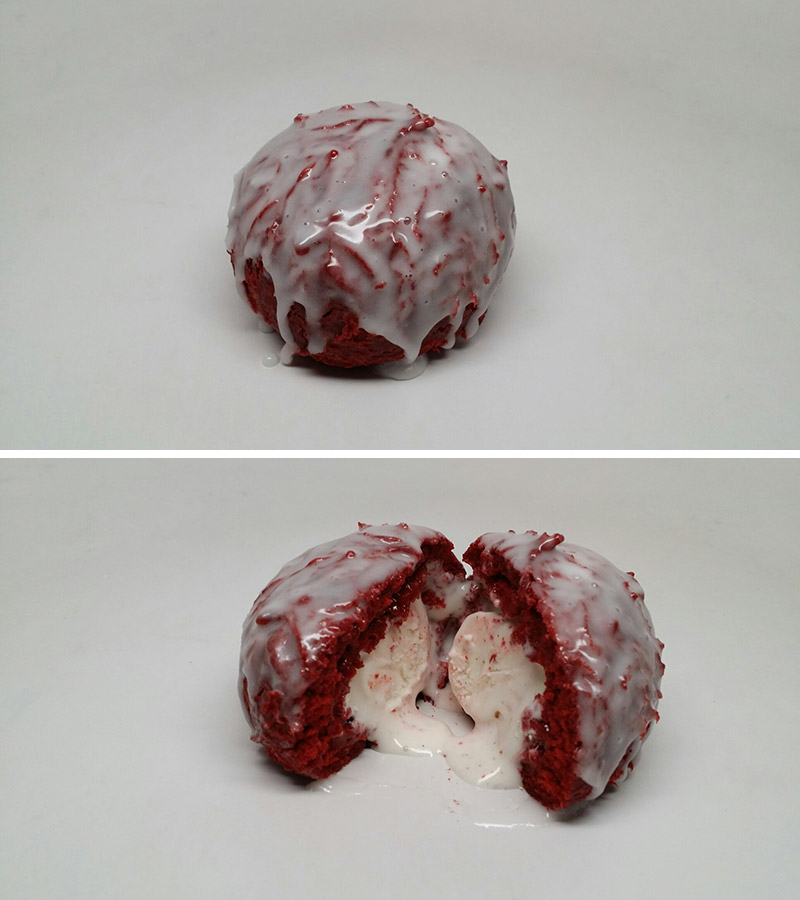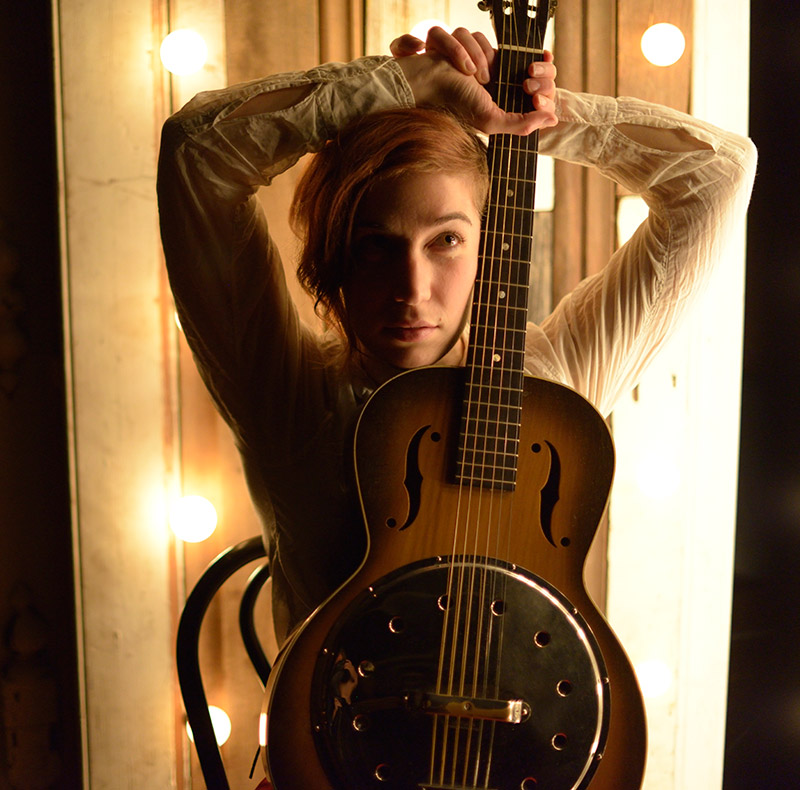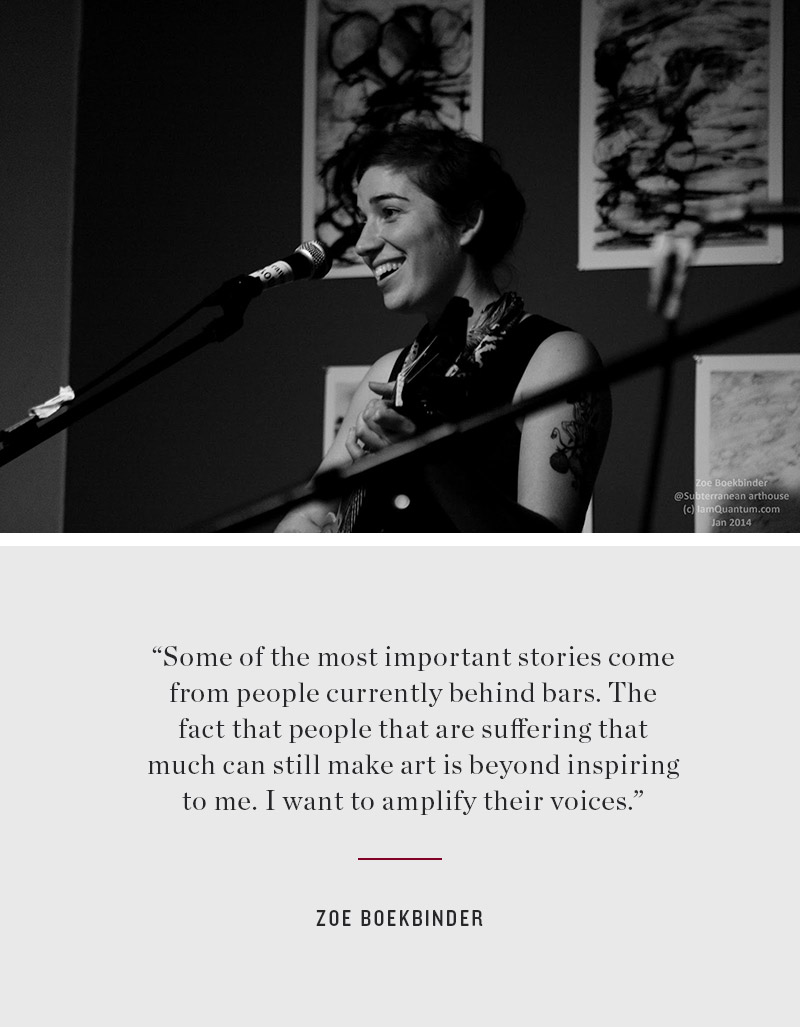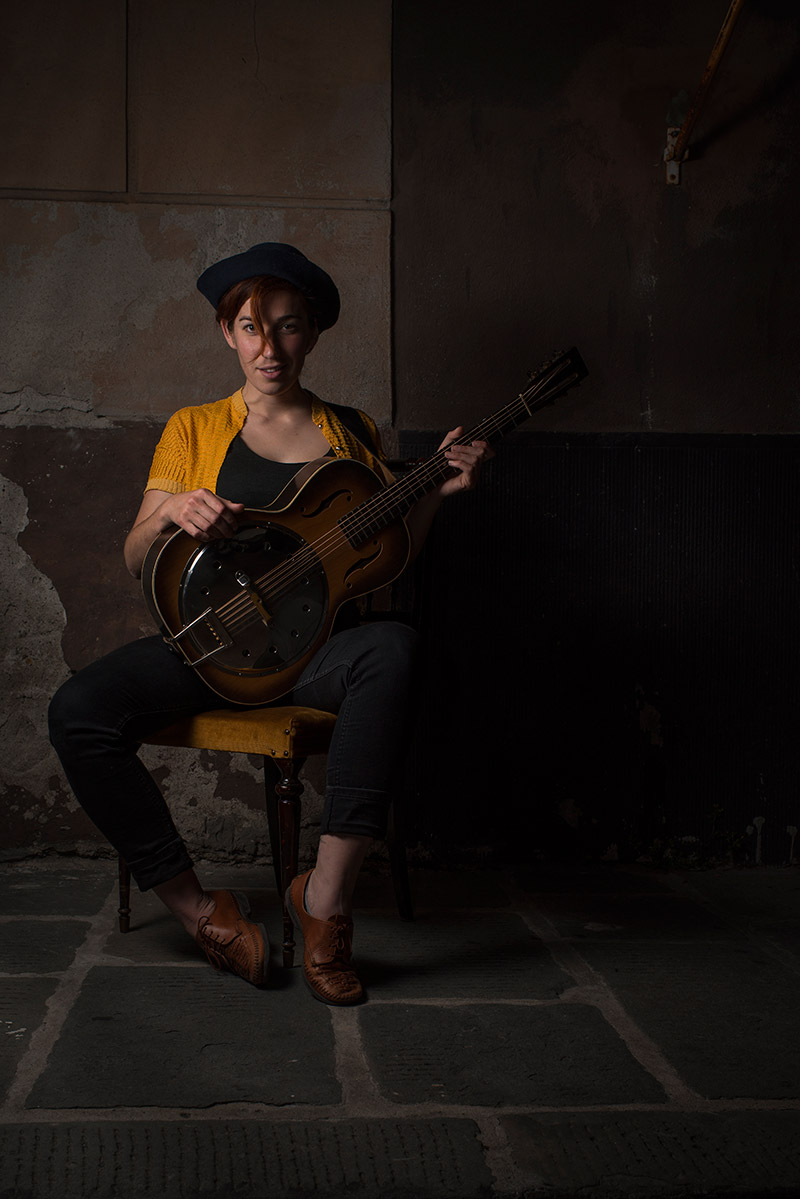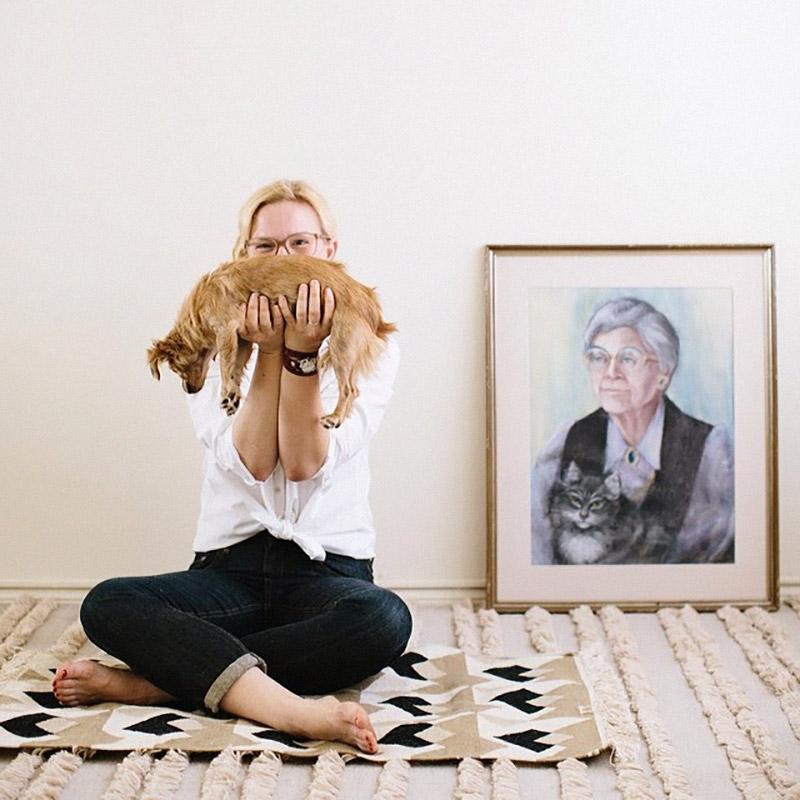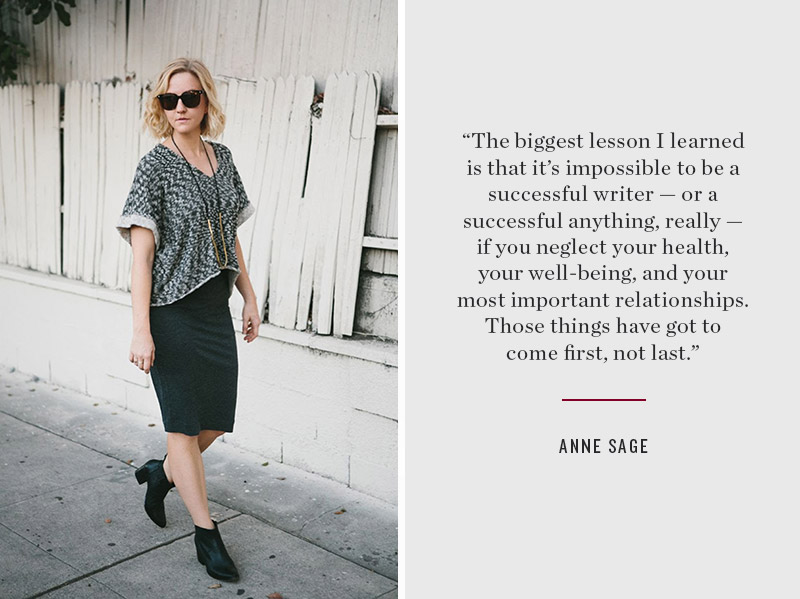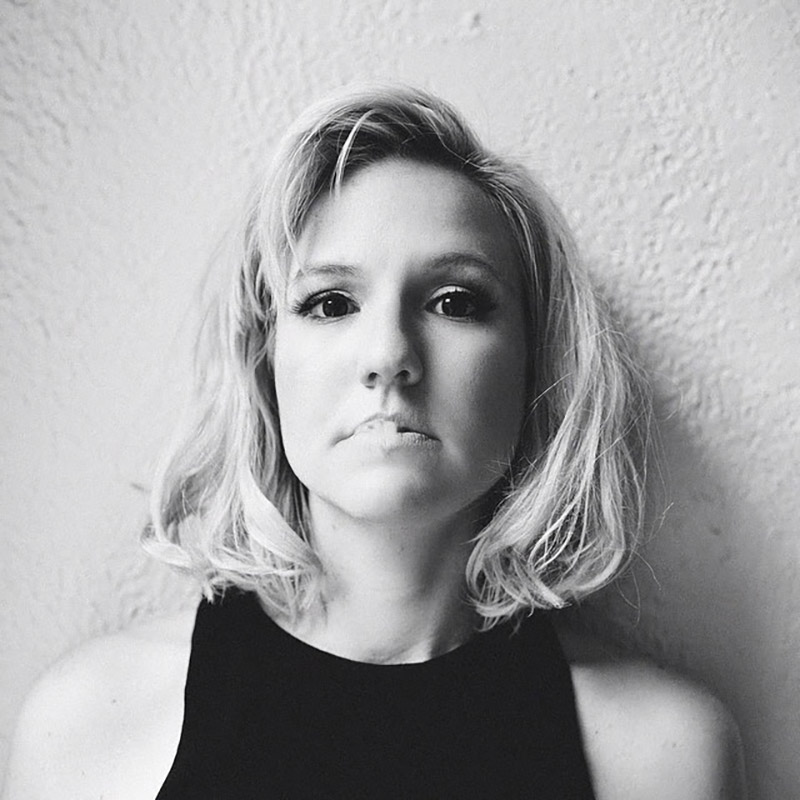
To do the work you love, you’ve got to unlock a few doors. UNLOCKED Stories are honest conversations with people who chose a path and made it happen.
A note from Ellen: I’m excited to feature this interview with Abby Falik, Founder & CEO of Global Citizen Year, a for-purpose social venture on a mission to make it normal for kids to choose a bridge year after high school: an experience that builds self-awareness, global skills and grit – the foundations for success in college, and beyond. Their core program gives high school graduates from diverse backgrounds the opportunity to spend a “bridge year” living and working in a foreign country —learning a new language, navigating a new culture, asking big questions, clarifying their life purpose, and building real-world life skills — before jumping into college.
The concept for Global Citizen Year was born out of a moment of personal frustration: Abby was looking for something like it when she graduated from high school, but she couldn’t find the right opportunity. So after a decade “becoming an expert” on the need – and promise – of a new pathway to college, she is building an organization that fills the gap in the marketplace.
If you’re curious about travel, social change, entrepreneurship, or just love stories about people who have figured out how to take big ideas and make them a reality, you’re going to love this conversation with Abby.
Read on and enjoy…
What do you do? Describe your organization?
[Abby]: I am the founder and leader of Global Citizen Year.
Our mission is to re-invent the pathway between high school and college.
The pressures today’s kids face as they are channeled along an educational conveyor belt are deeply concerning – by the time kids get to college they are more anxious, exhausted and confused than any prior generation.
What if we could change this trajectory so that today’s youth had time to pause, reflect before setting foot on a college campus? What if by the time kids got to college they weren’t burnt out, but were instead guided by burning questions about themselves, and their role in the world?
Global Citizen Year exists to make an immersive, global ‘bridge year’ before college a new rite of passage in America. Through structured training in mindfulness and authentic leadership, and 8 month immersion in communities across Asia, Africa and Latin America (where they do everything from assisting births in the Sahara to teaching English in the Amazon) we are helping young people develop the empathy, self-awareness and grit – the skills they need to know themselves, and to become impactful leaders over time.
Our organization is 5 years old. We started with 10 Fellows in our program. This year we have 100. We have 350 Alumni at 100 colleges across the country, and we know it’s working. The next challenge – and opportunity! – is to take our proven model to scale.
How does your program, Global Citizen Year, help to solve the “What is my life purpose?!” problem that so many young people are facing?
[Abby]: We are definitely facing a crisis in this country around defining the role and value of “college.”
The price of attending college is astronomical, drop out and burn out rates are sky high, and many students (and their parents) are wondering, “Is it worth it?”
And for those who beat the odds and make it through college, the pay-off isn’t what it used to be. There’s no “guarantee” of securing a great job right after graduation — and 90% of business executives say that today’s college grads lack the values, attitudes and skills needed to lead in our global economy.
Paul Tough, a best-selling author, New York Times journalist who has taught me so much, likes to describe how our schools are teaching kids to run on treadmills, but not to climb mountains.
As the stakes get higher and the competition fiercer, ambitious students are often scrambling for goals that they don’t even have time to question.
I created the Global Citizen Year because I want to help change this trajectory.
There’s a growing awareness that today’s students need time to pause, reflect and connect — not to technology, but to something deeper — before entering college or choosing a career.
I want to help create a world where by every young person has the opportunity to approach higher education – and careers – with passion, perspective and a clear sense of purpose.
Global Citizen Year is a big, ambitious program and it is clearly born “from the heart.” How did it all begin?
[Abby]: When I finished high school, I wanted to find some kind of challenging, real-world learning experience outside of the classroom.
I called the Peace Corps, but they told me I needed a college degree in order to participate.
Frustrated, I ended up going straight to college because it didn’t seem like I had any other options outside religious or military service. I remember wondering, “Why is that?”
I think at the moment, the seeds of Global Citizen Year were planted in my mind.
Two years later I reached a similar crossroads. I was studying International Development at Stanford University, but I felt antsy and constrained by classroom learning. My classes were intellectually engaging, but I sensed that there was so much more that I could be learning out in the real world.
So, with just a backpack and the address of a friend of a friend, I left for Brazil. Finding a job, navigating a new language and building a community so far from home was the most challenging — and formative — experience of my life.
When I got back to campus, suddenly I was confident and clear on how to use my education in the context of the life I wanted to build…but I only had one year left so the clock was ticking. I remember coming back to the instinct I’d had when I was 18, “Why aren’t we encouraging kids to have these types of formative experiences before college?”
Several years later, while attending Harvard Business School, I entered the school’s annual “pitch” competition — an event where aspiring entrepreneurs pitch ideas to students, professors and investors.
I pitched the concept for Global Citizen Year — and won.
At that, moment I knew there was no turning back. This was it.
What’s the status of your program today — and what’s next?
[Abby]: Five years after running a small pilot, we’ve grown tremendously.
Today, we have a world-class program and team. We’ve received financial contributions from the Ford Foundation, the Nike Foundation, and other leading investors. We’ve created partnerships with colleges like Tufts and UNC, which now encourage — and in some cases pay — for incoming students to take a “bridge year” through Global Citizen Year before they begin college. We’re working on plans to expand those partnerships to include hundreds of schools and tens of thousands of students.
And as the momentum continues to build, the greatest thrill is knowing that we’re just beginning to hit our stride.
These days, you don’t run Global Citizen Year all by yourself. Has it been challenging to learn how to delegate responsibilities to other team members as the program continues to grow?
[Abby]: As someone leading a team, I have learned that I can’t do everything on my own, and it’s essential to attract people who are smarter and more talented at their jobs than I ever could be.
Having the right people onboard allows me to play my role more freely and effectively. I am no longer doing our accounting, negotiating leases, managing our technology — tasks that don’t play to my strengths. I am free to do the things I am good at, and it feeds my energy and replenishes me. It makes me feel like I can keep going on my own fuel.
This might sound trite and obvious, but when you’re working alongside amazing people who do their jobs well, going to work doesn’t feel like “work”!
It feels like it’s taken a long time to get here. I wish I could have gotten here sooner — but looking back, there really aren’t any short-cuts in building a team and organization that are set up to thrive.
When you’re having a difficult, exhausting or stressful day, how do you get through it?
[Abby]: THIS kind of conversation! When I take a few moments to reconnect with the big picture — whether through an inspired conversation that gets the synapses firing, or my meditation yoga practice — that brings me back to a positive, energized place. These are my tools.
What has been the most challenging moment of your career so far? (A roadblock, rejection, scary situation, or “locked door” moment?)
[Abby]: There have been so many roadblocks and rejections along the way.
One that is forever burned in my mind was one of my very first pitch meetings for Global Citizen Year, where I presented the concept to a potential investor. Let’s just say… it did not go well. I couldn’t yet answer the investor’s questions, and I felt like I had blown it. I went home and cried that night. But the next morning I picked myself up, lifted my gaze back to the bigger picture, and kept going. As an entrepreneur, that’s just what you have to do. Keep going.
A few months later I had the opportunity reconnect with the same investor and to show him how his feedback had influenced my thinking and changed our model. By the end of the meeting, he was in – and suddenly the door I’d thought had closed, was now open.
Do you ever fantasize about having a totally different career? What would you do, in your fantasy-world?
[Abby]: I would be a yoga teacher – helping to guide students through the inner work of learning ourselves through attention and practice.
My first day of business school we did an exercise called 100 Jobs. We were given a list of 100 jobs and asked to circle 5 jobs that spoke to us. It is meant to be an intuitive process, not a logical one. The jobs I chose were venture capitalist, entrepreneur, Rabbi, high school principal, and small town mayor. It’s funny looking back on this — in many ways, my current job combines attributes from all five!
Who are your personal heroes and role models?
[Abby]: I had a coffee date recently with the founder of Pandora, Tim Westegren. Tim is this inspiring mix of crazy-brilliant and extraordinarily humble. He has accomplished so much but has a grounded patience that knows great things take time to unfold.
He reminded me that things take the time they take, and not to worry…or veer from my bigger vision. He suggested that our “best story” at Global Citizen Year is probably a few years out, and in the meantime it’s ok to say “no” to the TED talk, or to other opportunities to grow too fast or too soon. He said, “You’ll know when your clothes are too tight…that’s the moment to step on the gas…”
I feel lucky to have so many amazing role models in my life – from Wendy Kopp (the founder of Teach for America / Teach for All) to Will Kabat-Zinn (a renowned mindfulness teacher) – and I’m especially drawn to those who embody a special blend of confidence and humility and who inspire me to be my best self.
Last but not least: What’s your biggest piece of advice for anyone who wants to do amazing work in the world, stay motivated, and unlock major doors?
[Abby]: Most of the doors that you need to “unlock” are internal ones.
Attitudes. Beliefs. Stories you tell yourself about why certain things “can’t be done” a certain way. Those are the toughest doors to unlock.
My advice is to find your inner grit, be resilient, and listen to – and really hear – feedback from people you admire and respect so that you can refine and re-work your ideas.
In the end, though, stay true to your vision, even if it’s unconventional, and even if other people don’t “get it” or immediately jump on board with their support.
Remember that nobody wants to undertake the risk of being “first” with a new concept that’s not successful yet — but everyone wants to hop on the train once it’s leaving the station.
Sometimes, you just have to make those first early moves on your own, prove that your concept is viable, build some momentum, and then in time, a growing number of supporters show up to bring you to the next level.
So, don’t be afraid to go it alone — at least at first.
If your passion is contagious, you won’t be alone forever.
UNLOCK yourself
Three questions to think about, write about — or talk about with a friend.
1. After getting turned down by the Peace Corps, Abby realized, “I really want to take a bridge year between high school and college to travel and gain real-life experience, but I can’t find a program that offers that. What’s up with that?” This situation frustrated her. It also planted the first seeds in her mind for the program that she would later develop: Global Citizen Year.
: Have you ever had an experience that made you think, “How come this doesn’t exist?” or “Why do people do it like this?” or “Why doesn’t anyone offer this, because I want it!” What was that situation? Is that a “gap” in the world that, someday, you’d like to fill?
2. After experiencing a stressful day at work, Abby says that yoga and meditation are two of her favorite de-compression tools.
: How do you unwind and refill your tank after a demanding day? Is it time to add some new tools to your toolkit?
3. Abby was fortunate enough to sit down with one of her personal heroes, Tim Westegren, founder of Pandora. He encouraged her to be patient with her projects and wait until the “right time” to go after certain opportunities, rather than rushing to achieve everything right this second.
: Do you have a tendency to rush-rush-rush when it comes to your goals and passions? What’s something in your life — or career — that might actually become more successful if you give it time to “ripen”?
![]()
For more UNLOCKED interviews, click over here.
Know somebody that ought to be spotlighted? Write to me here.
See you next time for another inspiring conversation!

